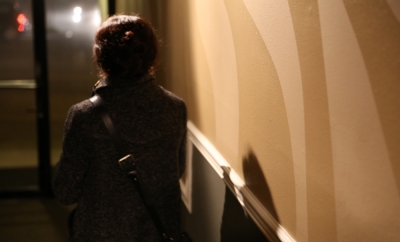
Existential Psychology
Obsessive Compulsive Disorder
Obsessive compulsive disorder is an anxiety disorder marked by unwanted and intrusive thoughts, feelings, or sensations and ritualistic behaviors that serve to temporarily reduce the associated anxiety. Think of obsessive compulsive disorder as like an equation where on the left side you have the obsessions and on the right side the compulsions to balance them out.
Some common compulsions include repetitive hand washing, counting things like footsteps, tapping objects a certain amount of times, turning lights on and off, or repeatedly checking that the car is locked. Many of these compulsions are performed mentally so that an observer would see no outward behavior. Although some people say they have no idea why they perform the rituals, the lowering of anxiety is almost always a central component and it comes down to whether this anxiety is conscious or unconscious.
Obsessive compulsive disorder can be quite a debilitating condition. Many feel trapped and embarrassed by their rituals and spend an inordinate amount of time performing them. They also feel terrified by their obsessive thoughts, especially that they will not be able to control themselves and will turn these thoughts into action. Many secretly fear that they will become psychotic, at which point they would have no conscious control over their intrusive, terrifying ideas and carry one of them out.
A few examples of obsessions are fascination with driving a car into oncoming traffic, picking up a knife and stabbing someone with it, or burning down a house. If you had these thoughts without wanting them you would probably also be terrified of letting down your guard. This makes it much easier to understand why people struggling against obsessive compulsive disorder continue to perform rituals even though they only offer transitory relief. When the stakes feel sky high you will take whatever help you can get.
There is a helpful if you have obsessive compulsive disorder that Viktor Frankl talks about in one of his books. Your underlying characterological structure makes becoming psychotic virtually impossible. He explains that people who have obsessive compulsive disorder do not become psychotic because they have too many safeguards built in based on how they have chosen to see the world, like heightened need for control, careful planning, avoidance of risk, and attention to detail.
A thought or impulse that might feel unremarkable to the general population is grounds for heightened awareness and distress for people who develop obsessive compulsive disorder. Ritualistic behaviors meant to find some relief from the distress lead to more disturbing thoughts, which lead to more intense ritualistic behaviors.
Viktor Frankl and his colleagues successfully helped many people with Obsessive compulsive disorder using paradoxical intention. Here are some examples of how individuals used it to combat their obsessive thoughts. “Oh, I am afraid of jumping down the stairwell. To be sure, yesterday I did so sixty times. Now let’s do it a hundred and sixty times” or “Oh, yesterday I ran the fork into my stomach ten times. Today I will enjoy doing it some more.” (Frankl, The Doctor and The Soul, Kindle Version POs 3754). Rather than avoiding the thought, patients actually imagined having carried it out and then thought of doing it even more. You embrace your obsessive thoughts instead of trying to keep them at bay with your compulsions. This puts a monkey wrench in the vicious cycle and opens up a way out for you.




